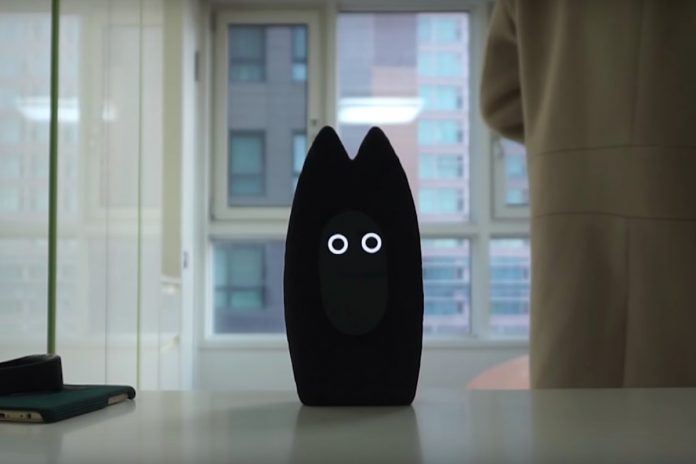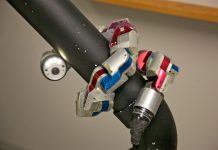As the rates of people in their 20’s and 30’s living alone rise, researchers are looking to technology to help mitigate the sense of loneliness and connect users. There are already a few available robots that encourage socialization, and joining their ranks is a cat-shaped robot called Fribo.
South Korean robotics scientists from Yonsei University and the Korea Advanced Institute of Science and Technology (KAIST) have constructed a new household robot, to be used by alone-living people, that helps them feel a bit more social.
Fribo is ingeniously combined from a Raspberry Pi and a small assortment of sensors into a cat-shaped robot, which listens to what its developers call “living noises.” These range from anything to a door opening to a light switch being flipped.
The robot learns to recognize the noises of a household, and then sends it in real time to another Fribo, or even a network of these cat-robots. The other device then tells its user that someone has, for example, opened the fridge door, then wonders what that person is about to eat. Such relays of information, accompanied by the question, provide a sense of cohabitation and offers a chance reach out to the other Fribo-owner.
The social robot can also be used for basic communications. Knocking on something close to Fribo will let the other person know that you are curious about they are up to. Additionally, clapping is used to show a positive reaction. For example, clapping three times after someone’s late arrival to home results in a “welcome home” message for the other owner.
Research on Fribo’s use
Researchers have conducted a small-scale study with Fribo. For four weeks, they gave out one each to a small group of friends, whose average age was around 25. The results of the study were very promising, with its users reporting a sense of living together, and the sense of loneliness being diminished. They were also encouraged to conduct a more balanced lifestyle, as they were often more inclined to reach out, and one user even reported that they felt motivated to get up sooner than their usual late mornings.
However, the future for Fribo is not yet certain. The developers say that the study was Korea-centric and that the robot may not have that great of a use in other cultures. They do intend to conduct more research, one that is more large-scale and spans over a year, as well as research including families and a larger group of people.
Privacy concerns
A thought that might immediately pop into mind is that the robot, with all its listening to noises, can be exploited for privacy breaches. However, its inventors developed it with privacy in mind: it does not listen for voices, indeed it barely has voice recognition at all. It also does not retain anything someone says about it. Moreover, the information that Fribo sends to its companions is always anonymous; it only says what happened, not who did it. Identity is only revealed if the recipient knocks to ask and the sender actually agrees.



















